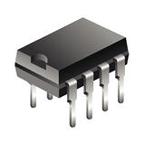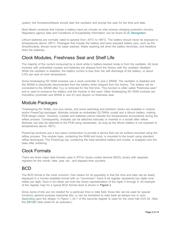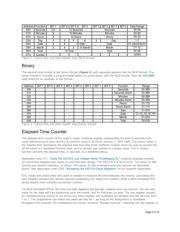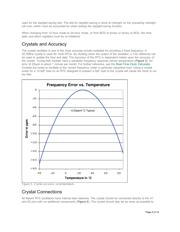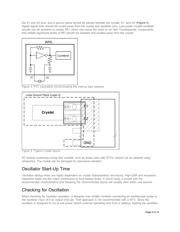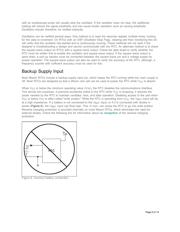下载

Maxim > Design Support > Technical Documents > Application Notes > Real-Time Clocks > APP 504
Maxim > Design Support > Technical Documents > Application Notes > Time and Temperature Recorders > APP 504
Keywords: battery backed, RTCs, real time clocks, crystal, 32kHz, real time clocks, oscillator, timekeeping,
time keeping, 32768Hz, 32.768kHz, elapsed time counter, ETC
APPLICATION NOTE 504
Design Considerations for Maxim Real-Time Clocks
Feb 15, 2002
Abstract:
A real-time clock
(RTC) allows a system to synchronize or time-stamp events to a time reference
that can be easily understood by the user. Because RTCs are used in an increasing number of applications,
designers should familiarize themselves with these RTCs to avoid design problems. This application note
provides a basic overview of RTC operation, design issues, and troubleshooting techniques.
Selecting an Interface
Real-time clocks (RTCs) are available in a wide range of bus interfaces. Serial interfaces include I²C, 3-wire,
and Serial Peripheral Interface (SPI). Parallel interfaces include mux-bus (multiplexed data and address bus)
and designs with separate address and bytewide data inputs.
The choice of interface is often determined by the type of processor being used. Many processors include
I²C or SPI interfaces. Others, such as 8051 processors and their derivatives, support multiplexed address
and data buses. Timekeeping NV RAMs use the same control signals as SRAMs, to which many processors
provide an easy interface, and include battery-backed RAM in various densities. Finally, phantom clocks
"hide" behind battery-backed RAM and use a 64-bit software protocol to gain access to the clock. A
phantom clock can therefore provide time and date information without using any memory space.
Battery Backup Function
In some applications such as VCRs, the time and date information will be lost if power is removed. Other
applications require that the time and date remain valid even if the main power supply is off. To keep the
clock oscillator running, a primary or secondary battery or a super capacitor may be used. In this case, the
RTC must be able to switch between the two power supplies.
If a primary battery, such as a lithium coin cell, is used for backup, the RTC should be designed to draw as
little power as possible when running from the battery. In this situation the RTC will switch its internal supply
bus to the battery and go into a low-power mode. Communications between the microprocessor and the
RTC are usually locked out (often called write protect) to keep the battery current at a minimum and to
prevent data corruption. The V
CC
voltage level at which communications is locked out is usually defined in
the data sheet as V
TP
(Trip Point Voltage).
Many clocks include an oscillator control bit, usually called the clock halt (CH) or enable oscillator (EOSC)
bit. This bit is usually located in bit 7 of the seconds register, or in a control register. In almost all clocks with
this bit, it is preferable that the oscillator be off when the battery is initially attached. This conserves the
battery until the system is powered up. It also allows the system designer to set up a manufacturing flow so
that no battery current is drawn after a fresh lithium battery is installed.. When the end user first powers the
Page 1 of 14

